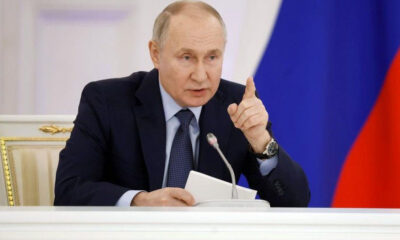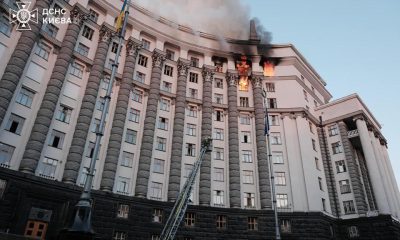International
Russia expelled from Council of Europe after 26 years

The Council of Europe on Wednesday said it has expelled Russia with immediate effect after 26 years of membership because of the Ukraine war.
The Committee of Ministers took the decision in a special session, the rights body announced in the French city of Strasbourg.
Earlier, Russia had already declared its withdrawal from the Council of Europe after it had taken steps to exclude it.
On Tuesday evening, the Parliamentary Assembly of the Council of Europe voted unanimously in favour of Russia’s exclusion.
Russia joined the Council of Europe on February 28, 1996.
READ ALSO:
- Court sentences cleric to death for killing friend
- Lagos Police Command gets new PRO as Ajisebutu bows out
- Strike: NANS gives FG, ASUU 2 weeks deadline to open varsities
Together with the formal notification of the withdrawal, the secretary general of the Council of Europe also received information from the Russian Federation on Tuesday about its intention to denounce the European Convention on Human Rights.
In a statement on Tuesday evening, the leaders of the Council of Europe once again condemned the Russian invasion of Ukraine.
They expressed their solidarity with the Russian people, who continue to belong to the European family and share its values.
The body said it would continue to stand by Ukraine in the fight against the aggressor.
The Council of Europe monitors the observance of human rights in its 46 member states and is not part of the European Union.
The body reacted to the Russian invasion of Ukraine two weeks ago by suspending Russia’s membership, this decision was considered historic.
dpa/NAN/EAGLE
International
Indonesia Flood Disaster: Death Toll Exceeds 900 as Search for Hundreds Continues

Indonesia Flood Disaster: Death Toll Exceeds 900 as Search for Hundreds Continues
The death toll from the catastrophic Indonesia floods has risen to more than 900, with hundreds still missing as rescuers struggle to reach communities cut off by last week’s rare and powerful cyclone over the Malaca Strait. The storm unleashed torrential rain and severe landslides, destroying over 100,000 homes across multiple regions.
Authorities say relief efforts remain extremely challenging, with aid being air-dropped into isolated areas where roads and bridges have been washed away. The deadly floods form part of a chain of recent extreme weather disasters across Asia, bringing the combined regional death toll — including in Sri Lanka, Thailand, Malaysia, and Vietnam — close to 2,000.
READ ALSO:
- 25 Dead in Goa Nightclub Fire After Suspected Gas Explosion in Arpora
- Doctor Charged With Sexually Assaulting 38 Patients in West Midlands Hospitals
- Shettima Inaugurates Multi-Million Naira Juma’at Mosque in Gumel
In Aceh Tamiang, among the worst-hit districts, survivors described entire villages being swept away by surging waters. Residents of Lintang Bawah Village told the BBC Indonesian service that many families survived only by taking refuge on rooftops.
Fitriana, a survivor, recounted how some villagers endured three days without food or water as they clung to their homes: “Ninety percent of the houses in our village were destroyed,” she said, leaving 300 families displaced.
Another survivor described fleeing twice — first from his own home as floodwaters reached the second floor, and then again from a nearby village inundated overnight:
“While we were sleeping, water soaked the mattresses. There was no higher ground. We survived by climbing to the second floor of my daughter-in-law’s house.”
Indonesian authorities continue emergency operations as hopes fade for those still unaccounted for. The government has pledged expanded humanitarian support as the scale of the disaster becomes clearer.
Indonesia Flood Disaster: Death Toll Exceeds 900 as Search for Hundreds Continues
BBC
International
Russia Intensifies Airstrikes on Ukraine as Zelensky, Trump Envoys Advance Peace Talks
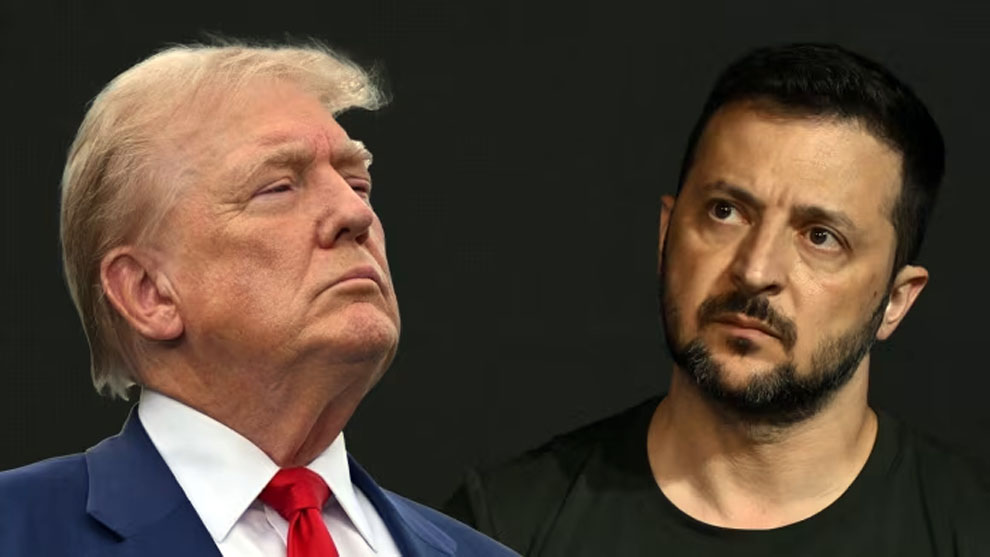
Russia Intensifies Airstrikes on Ukraine as Zelensky, Trump Envoys Advance Peace Talks
Russia has intensified its overnight aerial attacks on Ukraine, striking multiple regions just hours after President Volodymyr Zelensky described his discussions with Donald Trump’s negotiating team as “very constructive.” The renewed assaults come amid a fresh push for a US-led peace framework aimed at ending the nearly three-year-old war.
The mayor of Kremenchuk, a key industrial city in central Ukraine, confirmed the area suffered a “massive combined strike”, damaging critical infrastructure and leaving residents without water, electricity, and heat. No fatalities have been reported so far.
Russia’s defence ministry claimed it intercepted 77 Ukrainian drones across several locations during the same period, underscoring the ongoing intensity of the conflict despite diplomatic efforts.
Zelensky said he is “determined” to continue working closely with the US after three days of detailed negotiations in Miami involving Trump’s envoy Steve Witkoff and the former US president’s son-in-law Jared Kushner. Talks focused heavily on ensuring Russia’s compliance with any future peace agreement.
READ ALSO:
- 25 Dead in Goa Nightclub Fire After Suspected Gas Explosion in Arpora
- Doctor Charged With Sexually Assaulting 38 Patients in West Midlands Hospitals
- Shettima Inaugurates Multi-Million Naira Juma’at Mosque in Gumel
The US has been mediating a multi-point peace plan, though progress remains limited as Kyiv, Moscow, and European allies differ on key proposals. European leaders have pushed for additional security guarantees for Ukraine, including the possibility of a multinational peacekeeping force, an idea Russia has rejected.
French President Emmanuel Macron, UK Prime Minister Sir Keir Starmer, German Chancellor Friedrich Merz, and Zelensky are set to meet in London on Monday to coordinate Europe’s position on the evolving peace framework. Macron reiterated France’s commitment to achieving de-escalation and a ceasefire.
Meanwhile, the US and Ukraine have jointly urged Moscow to demonstrate “a serious commitment to long-term peace.” The appeal came after Witkoff returned from Kremlin talks with Vladimir Putin, which ended without a breakthrough.
Ukraine’s new chief negotiator Rustem Umerov said he and Witkoff have “agreed on the framework of security arrangements” and discussed deterrence measures needed to secure a durable peace.
The latest wave of Russian airstrikes — following a wider barrage a day earlier condemned by European leaders — underscores the gulf between diplomatic negotiations and realities on the ground as the war grinds on.
Russia Intensifies Airstrikes on Ukraine as Zelensky, Trump Envoys Advance Peace Talks
BBC
International
25 Dead in Goa Nightclub Fire After Suspected Gas Explosion in Arpora
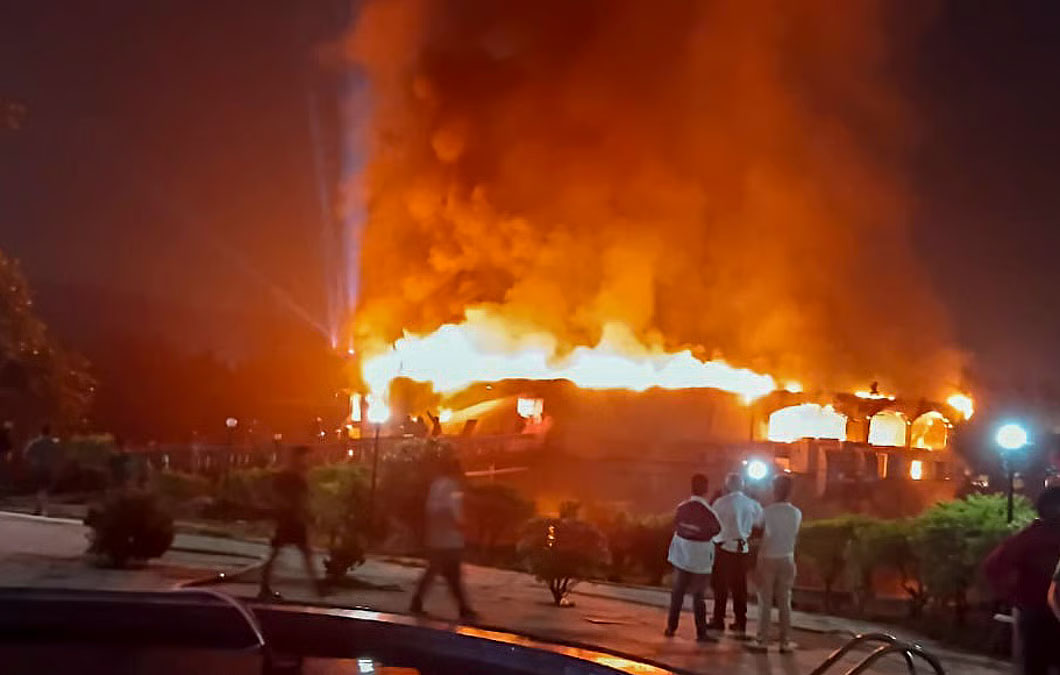
25 Dead in Goa Nightclub Fire After Suspected Gas Explosion in Arpora
A devastating inferno at a popular nightclub in Goa has left 25 people dead, with authorities confirming that most of the victims were employees of the establishment located in Arpora, North Goa. Several tourists are also among the casualties.
Officials say the blaze, which erupted around midnight on Saturday, was triggered by a suspected gas cylinder explosion in the club’s kitchen. The fire quickly tore through the premises, leading to scenes of panic in the bustling nightlife district.
Goa Director General of Police Alok Kumar confirmed that the fire was concentrated on the ground-floor kitchen area and has since been brought under control. Most bodies were recovered near the kitchen, reinforcing concerns that staff members bore the brunt of the tragedy.
Goa Chief Minister Pramod Sawant stated that three victims died from burn injuries, while others succumbed to suffocation. He also revealed that “three to four” tourists had been confirmed dead, though their identities and nationalities remain unknown.
According to The Indian Express, the incident occurred at Birch by Romeo Lane, a well-known club near Baga Beach, one of Goa’s busiest tourist hubs. The area is lined with nightlife venues that typically draw large crowds on weekends.
READ ALSO:
- Doctor Charged With Sexually Assaulting 38 Patients in West Midlands Hospitals
- Shettima Inaugurates Multi-Million Naira Juma’at Mosque in Gumel
- Police Launch Special Enforcement Team to Enforce Tinubu’s Ban on VIP Escorts
Witnesses described chaotic moments as screams filled the air moments after the explosion. One bystander told the BBC: “It was a normal Saturday night. Suddenly there were screams, and then we realized a massive fire had broken out. The scenes were horrific.”
Fire crews worked through the night, combing through charred debris to determine the full extent of damage and finalize victim identification. The remains of burnt furniture and décor were visible at the site on Sunday morning, now sealed off by security officials.
Victims’ bodies have been transferred to Goa Medical College in Panaji, where identification is underway before notifying families.
Chief Minister Sawant has ordered a formal inquiry into the cause of the blaze, promising that “those found responsible will face the most stringent action.” He expressed “deep grief” and extended condolences to affected families.
Indian Prime Minister Narendra Modi described the incident as “deeply saddening”.
Goa, a former Portuguese colony famed for its beaches, nightlife, and resorts, attracts millions of visitors annually. Government figures show 5.5 million tourists visited the state in the first half of the year, including 270,000 international travelers.
The tragedy adds to a growing list of fatal fires in entertainment venues across India, including recent incidents in Hyderabad, Kolkata, and Gujarat, often linked to poor safety standards and overcrowding.
25 Dead in Goa Nightclub Fire After Suspected Gas Explosion in Arpora
BBC
-
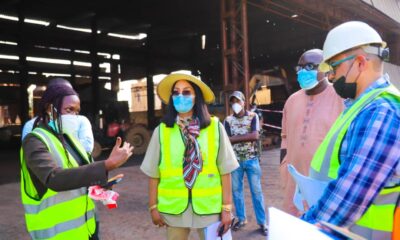
 metro3 days ago
metro3 days agoSenate Launches Emergency Probe into Widespread Lead Poisoning in Ogijo, Lagos/Ogun
-

 News3 days ago
News3 days agoBREAKING: Tinubu Sends Fresh Ambassadorial Nominations to Senate, Names Ibas, Ita Enang, Dambazau
-

 Auto3 days ago
Auto3 days agoCourt of Appeal Affirms Ruling Barring VIO from Seizing Vehicles or Fining Motorists
-

 Sports1 day ago
Sports1 day ago2026 FIFA World Cup Draw: England Draw Croatia as Brazil Face Morocco in Tournament Opener
-

 News3 days ago
News3 days agoUS authorities arrest Nigerian CEO Cashmir Chinedu Luke for alleged $7m VA fraud
-

 metro3 days ago
metro3 days agoFG secures release of three Nigerians detained in Saudi Arabia
-
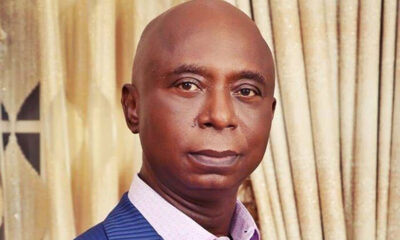
 metro3 days ago
metro3 days agoNed Nwoko vows legal action against rising online harassment, criminal defamation
-
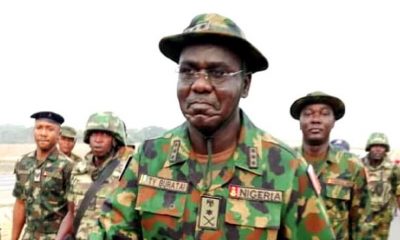
 metro3 days ago
metro3 days agoBuratai Defends Nigeria’s Resilience, Says Nation Is “Rising, Not Failing” Despite Insecurity





